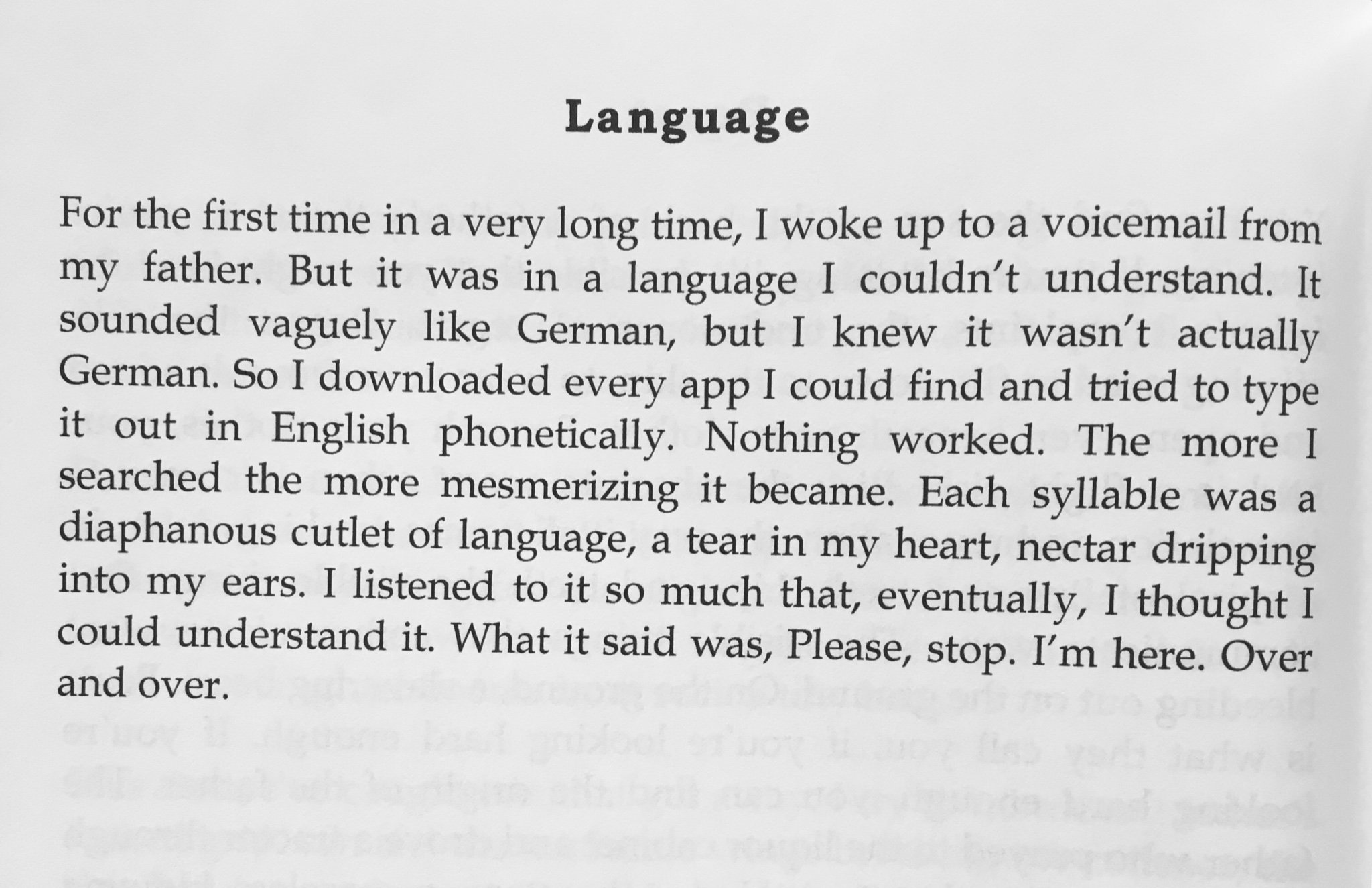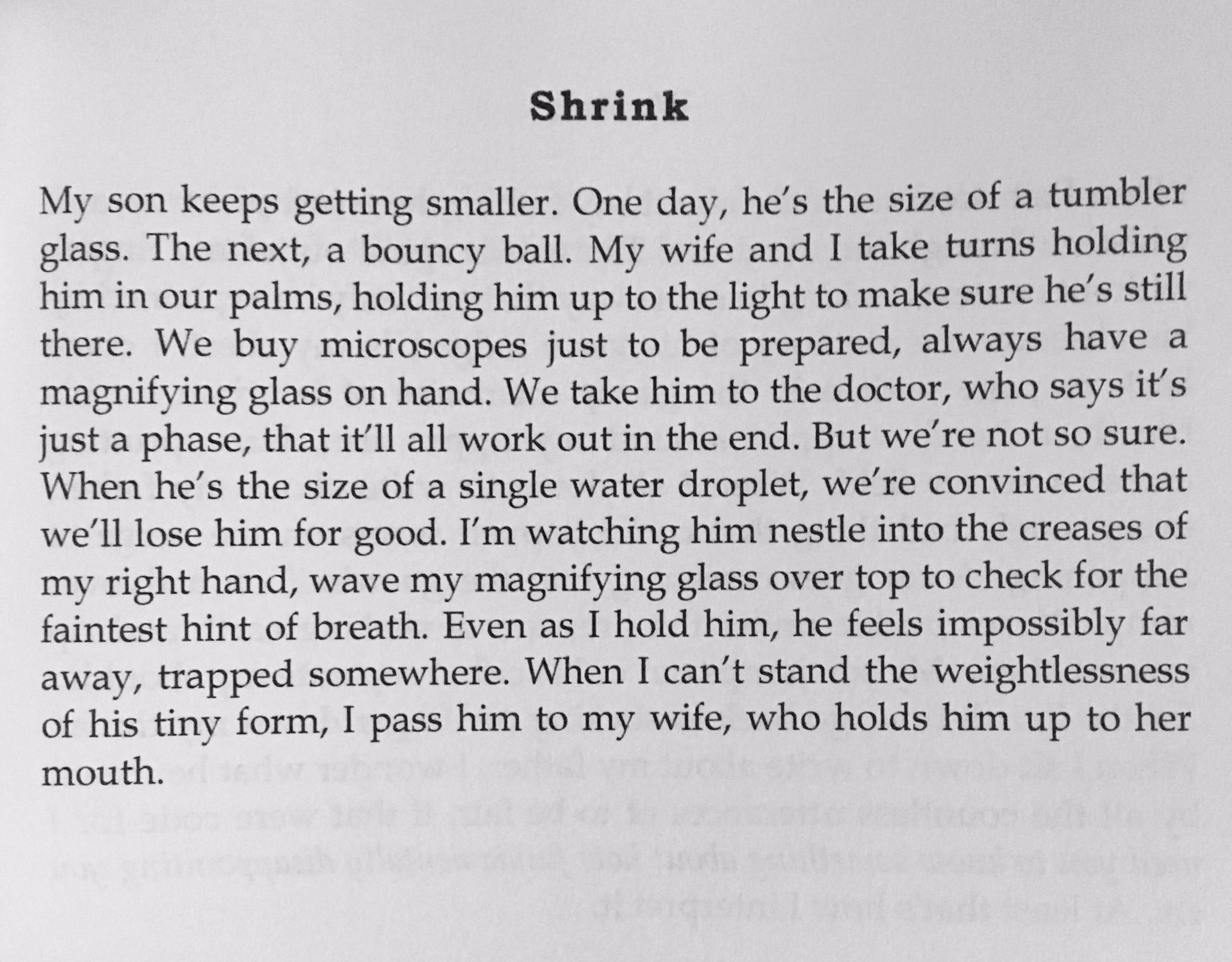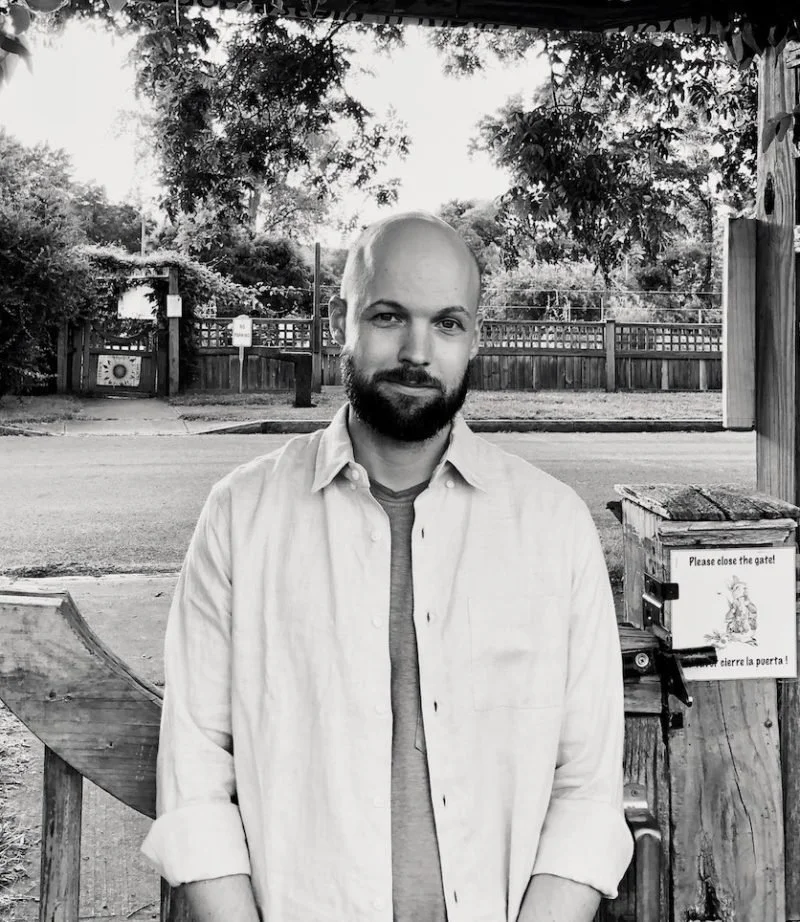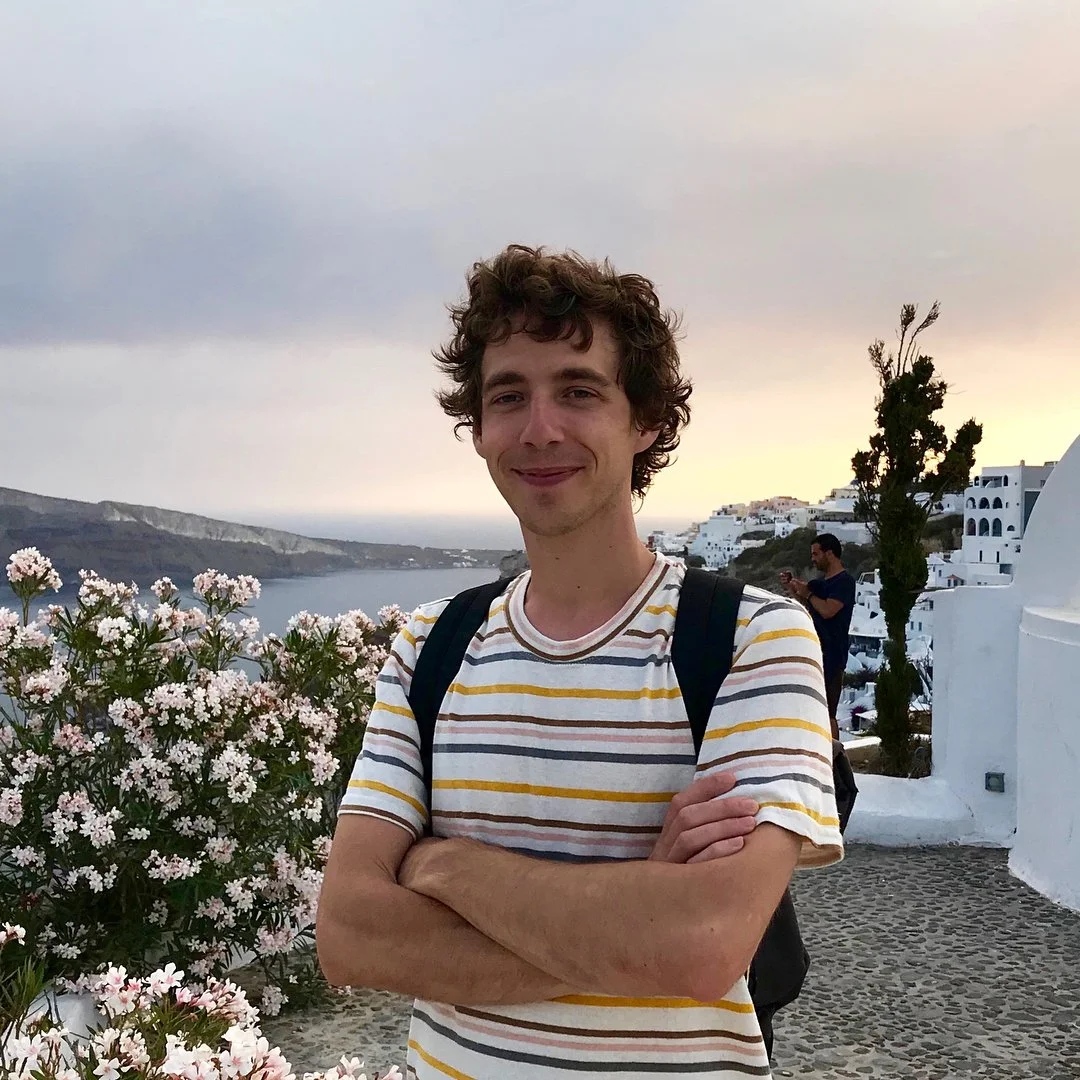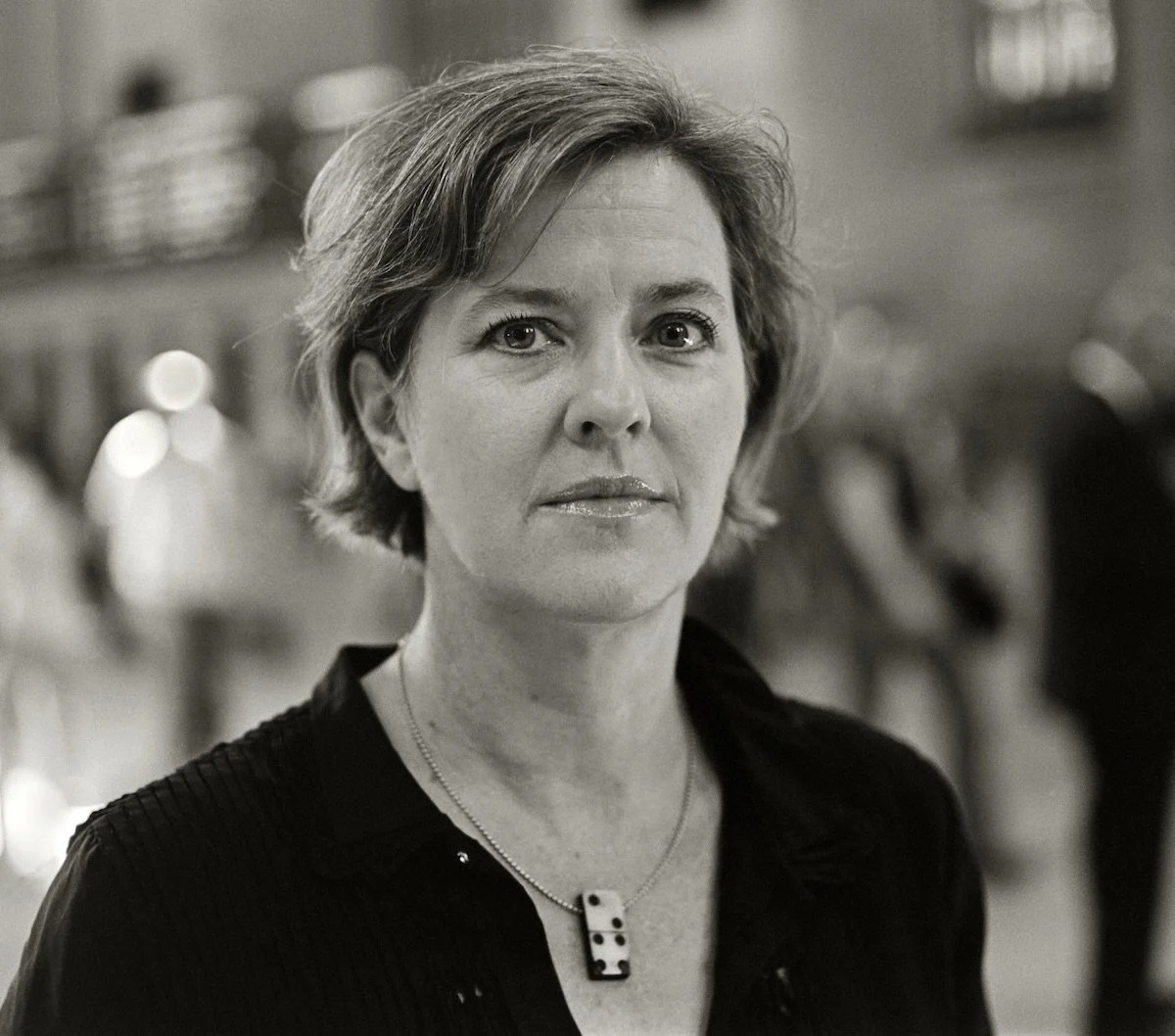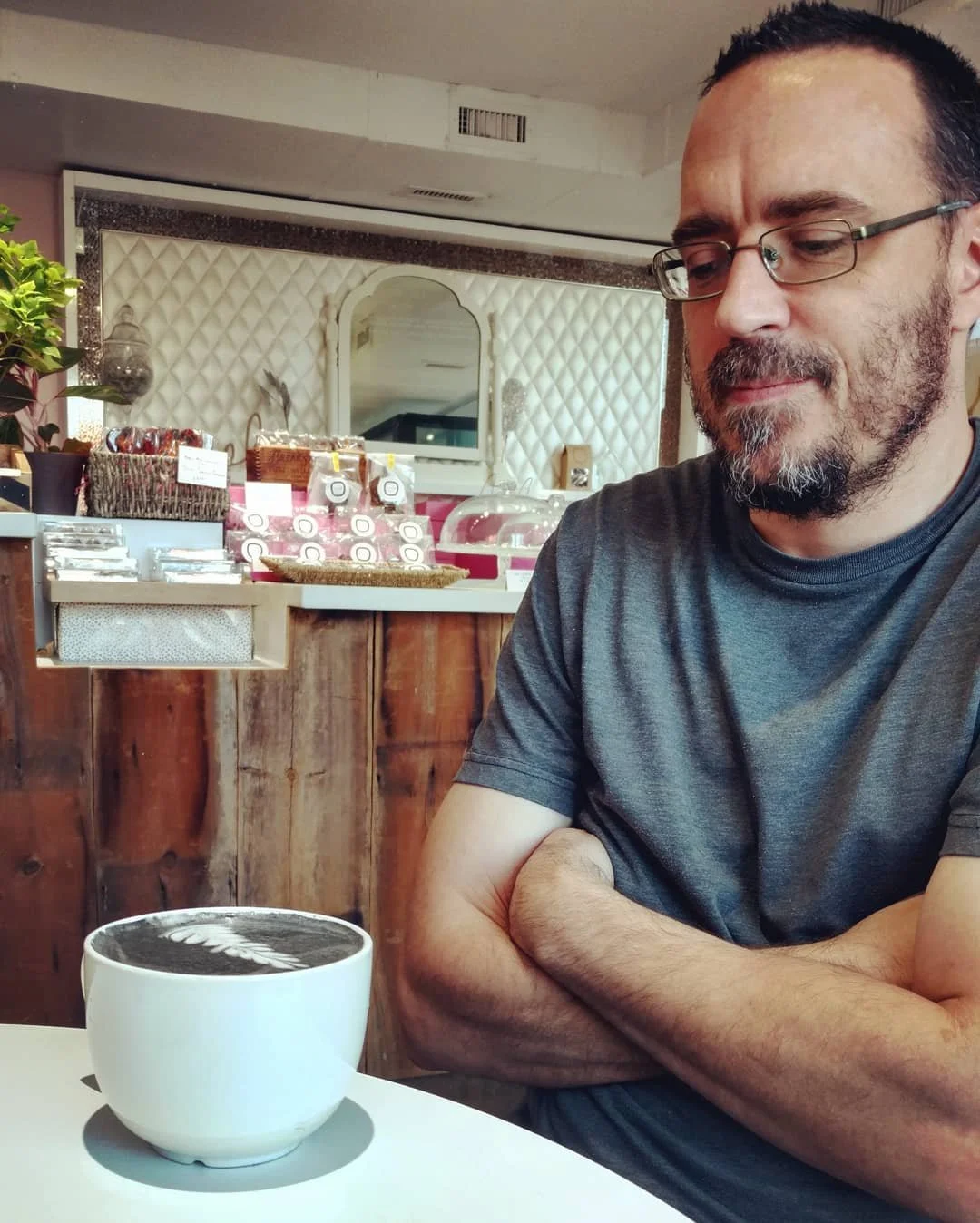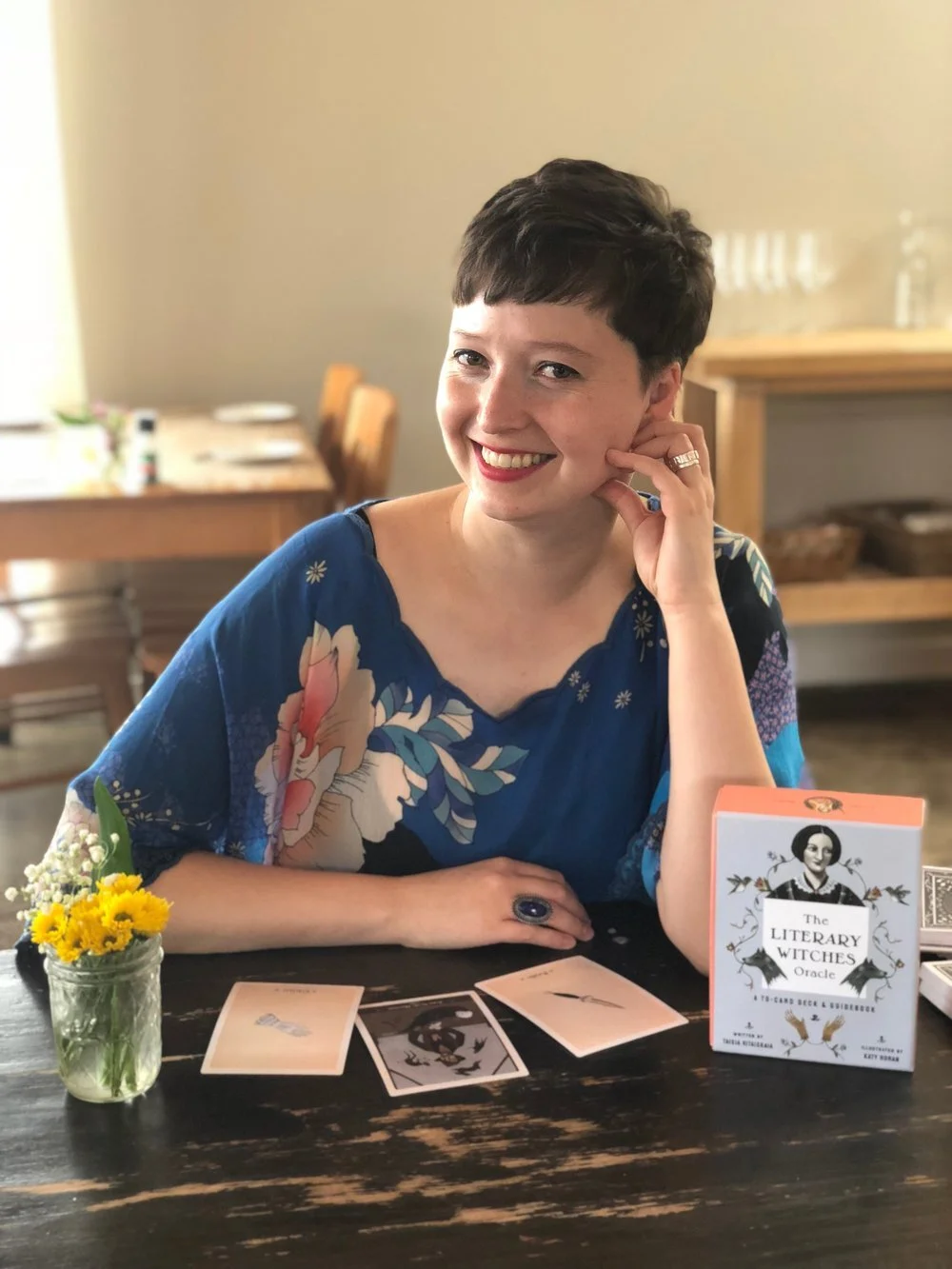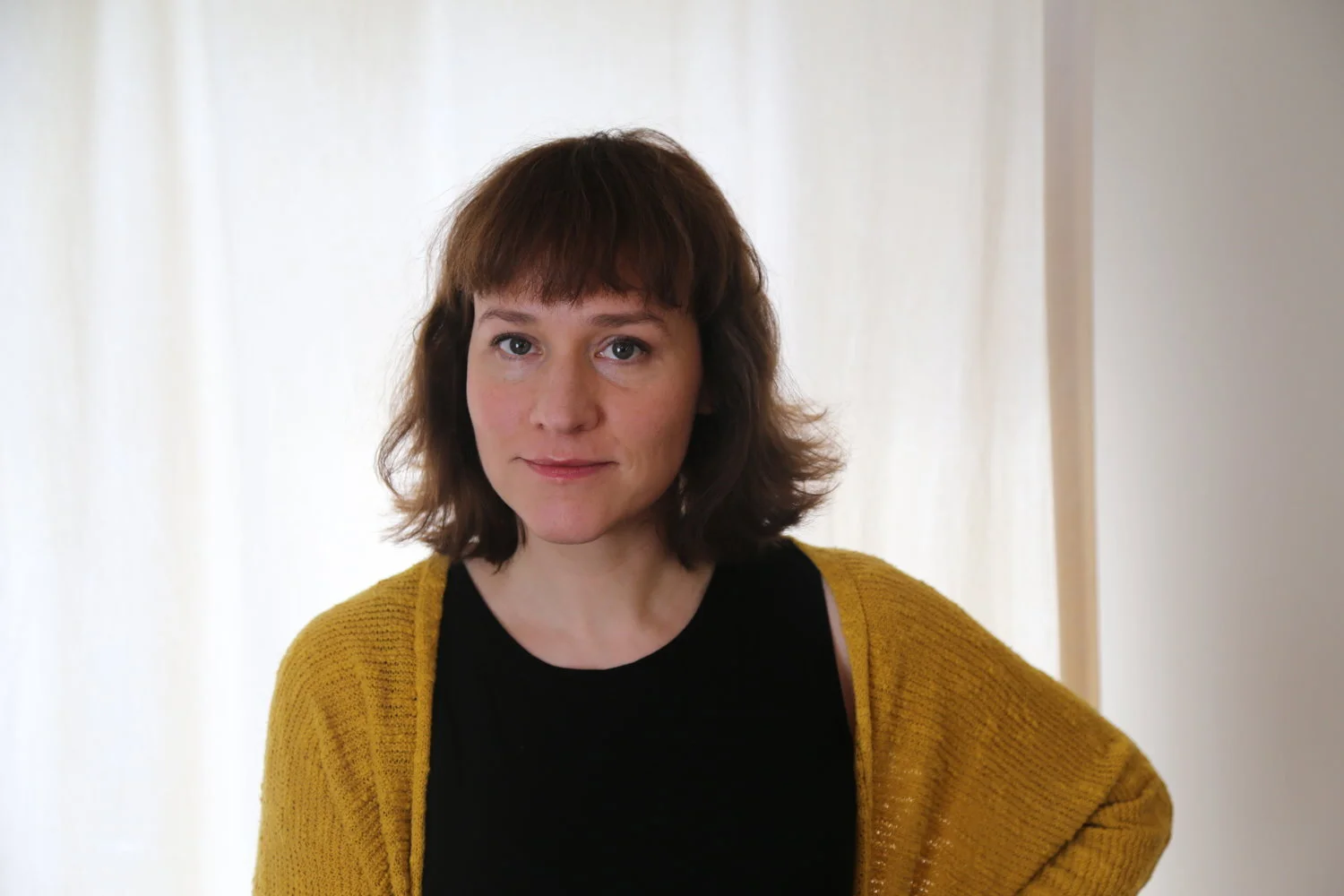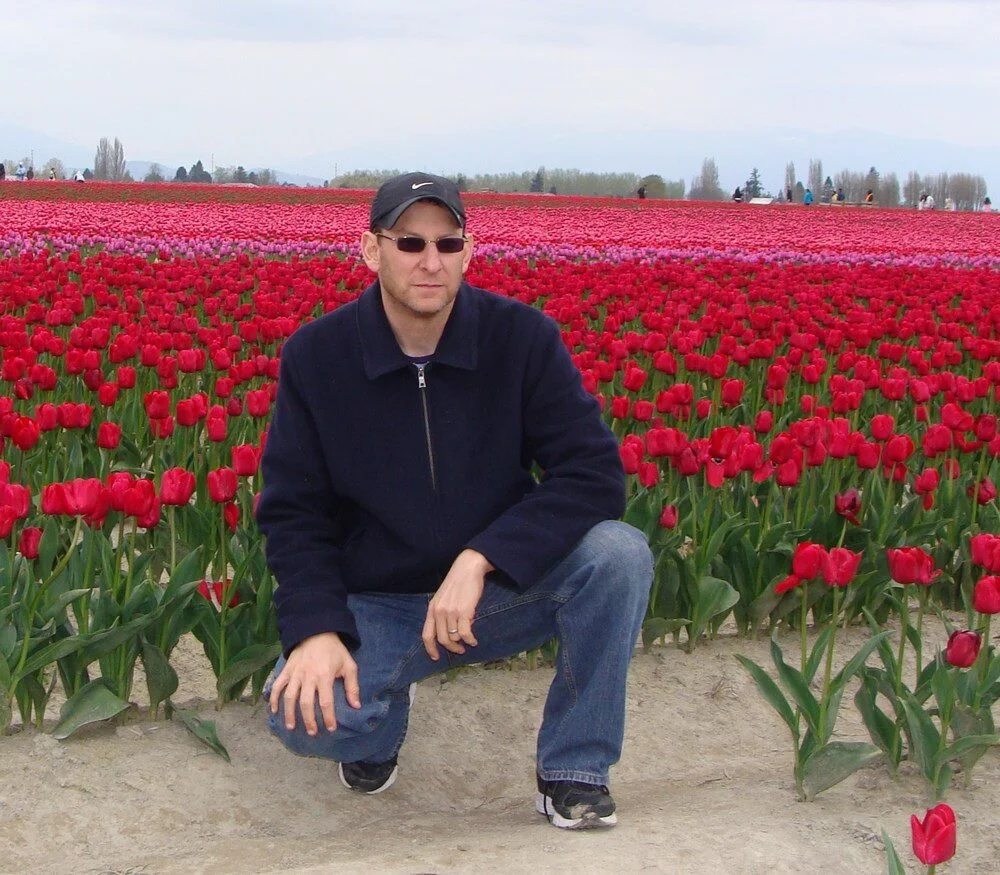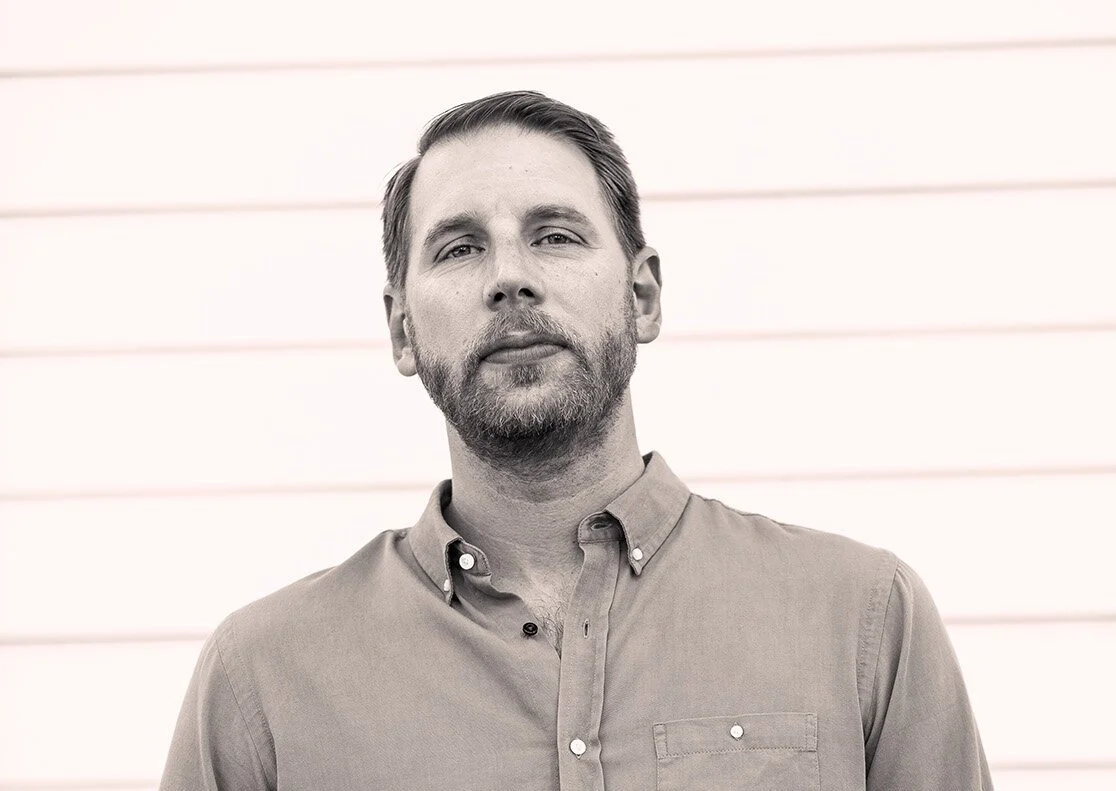Last autumn, Luke Wortley released his debut full-length poetry collection Shared Blood. A surrealist assortment of absurdist prose poems and vulnerable domesticities, it’s a cohesive and connected collection see-sawing between becoming a father while dealing with an estranged father of one’s own. Blending dream logic with the achingly real, this is Midwestern family life tilted slightly sideways. In a world where staircases are made of hands and milk pours out of eyes, this is a book of lips and teeth and bones and bourbon. Ghosts and confessions and love and grief. Gutting, heart-wrenching paragraphs packed with absence. A city in a stomach, a sunflower sprouting out of a phone.
There aren’t many active prose poets, and of those who are, only a handful are absurdists and/or surrealists, so it was only right I chatted with Luke Wortley about his debut full-length, his chapbook Purge, discovering surrealism, keeping the tradition alive, immersing in board games, and much more.
Let's get right into it. Congrats on your debut full-length! There's only a handful of us releasing surrealist prose poems out into the world and I'm glad you're part of this weird web. How long has surrealism been part of your own writing?
Since the beginning, really. I never really considered myself a writer, but artistic drive has always been a big part of my identity broadly. My first exposure to surrealism was the work of Salvador Dalí in Painting II in high school as a relatively advanced, aspirational 2D artist. Then I went down a Frida Kahlo rabbit hole for a bit…From there, I ended up going to undergraduate to study Spanish and 2D art with an emphasis in painting (eventually dropped this major, but it's still a part of my life in many ways)...but the first exposure to surreal/irreal/slipstream/magical realism in writing was probably Beloved by Toni Morrison my senior year of high school. I think that was one of those epiphanic moments for me. But, I didn't really think about writing, then. It wasn't until I was reading the masters of what is considered the Boom of the Latin American literature scene, their progenitors, and their descendents that I thought I could even try something like that. Jorge Luis Borges, Julio Cortázar, Gabriel García Márquez, Isabel Allende, even parts of Juan Rulfo or Gabriela Mistral, Alfonsina Storni, some lesser known naturalist writers like Baldomero Lillo, Horacio Quiroga, Francisco Coloane, etc. I was transfixed by this form and its specific relation to the historical context and expression of the absurdity of life and violence and corruption and everything in between by leaning into that strangeness to pierce this imaginative veil. So, when I discovered the work of contemporary short fiction writers in English like Karen Russell, George Saunders, and Steven Millhauser, that's what I started writing. I later came to the works of folks like Eduardo C. Corral, Patricia Smith, James Tate, Bianca Stone, Tomas Q. Morin, Mathias Svalina, Zachary Schomburg, Tomaž Šalamun, Lucille Clifton, Laura Kasischke, etc. and they've all had a huge impact on my work. At this point, I don't know how I conceptualize story or poetry without surrealist elements.
What is the oldest piece in Shared Blood and what is the newest piece in Shared Blood? What was the process like assembling and forming this collection?
This is a hard question to answer. I went back to my files, and I'm not sure how many times and how long ago they were modified for real, but the oldest one without modification is "Patrilineal," according to that "analysis." The newest, according to this very rigorous method, is "Stairs." The assembly was pretty easy, honestly. I had a target length, and I had a bunch of poems circling this drain, so I just put them all together and started picking the ones I think worked.
Your website is arranged according to "stories" / "flash" / "poetry". Given how frequent prose poetry is in your poetry writing, how do you find the line between these three signifiers? Is it strictly word count?
Heh. Softballs, here. Honestly, I have no idea. I think taxonomy and classification are useful tools for broader perspective when it comes to examining stuff as cultural artifact, but I really think word count only applies to the specific delineation between the prose forms of novel/novella/novelette/short story/flash/micro. When it comes to separating flash fiction/microfiction from a prose poem, the line, as you know, is almost just vibes. I personally distinguish them based on the intention of the piece. I find my prose poetry is based on a feeling I want to convey whereas my stuff I'd label more as fiction comes from a conceptual viewpoint that's concerned fundamentally with messing with elements of craft and puzzling them together to form something resembling a narrative.
Upon beginning a new piece, are you uncertain as to where it will go / what it will be? Or do you know you're beginning a story vs. beginning a prose poem when it's still in the earlier stages?
Oh, this one is finally an easy one. It's the latter. While I'm not much of a planner broadly, I don't have the "discovery" component of my artistic life in that way. Like, if I sit down to sketch, it might turn into whatever, but I know I'm drawing, if that makes sense.
In regards to your lengthier pieces (and perhaps also your micro writing), do you find yourself expanding and elaborating while editing, or is it more of a deleting and erasing away?
I am almost invariably too verbose in early drafts, and I think some would contend that I am still in my published work. An overwhelming percentage of my revision is cutting away and shaping rather than elaboration.
We've been published in a bunch of the same great journals (Maudlin House, Bending Genres, HAD, Unbroken Journal). What made you choose these journals and submit some selections? It can sometimes be tricky to find homes for surrealist prose poems.
Heh. So many of us tend to cluster around certain journals/magazines. I tend to scope them out in terms of finding others whose work might be a good comparison for mine in terms of aesthetic or thematic concerns; I've been an active "Twitter poet" for a long time, been submitting for some time, and I think I have a decent grasp on who might want something. No fees is also a big plus.
Love your mixture of the weird and the tender, as in "Monster" and "Shrink", two of my favorites in your debut collection. Do you start with an image or a line? A word? A mood? How do you get on the page? And if you have any anecdotes or tidbits about these two poems (how they were formed, the revision process), that'd be great!
Yes. In all seriousness, though, I think those two in particular were certainly more based on image rather than language, but I do like to play with words, too, especially if I have written something else that just has that one banger combo of words together in some bit of syntactical arrangement; I'll keep good lines and just keep plugging away on trying to make them work with a whole piece. The only little anecdote about those two in particular is that I stumbled into the "Monster" ending by recalling the ending of Don Barthelme's "The School." That story has been a cornerstone of my thinking about fiction and such for so long, and it was fun to sneak in a little homage.
You released your debut chapbook Purge in 2022 and your debut full-length Shared Blood in 2023. Do you see these collections as connected? Kindred spirits? Do you think your future writing will share similar themes and blending of surrealistic fabulist tones?
I think they're connected, yes. Perhaps at the risk of over-sharing, the disordered eating and concerns of the body in Purge are not unrelated to the concerns of manhood and fatherhood expressed in Shared Blood. It's no coincidence that wrestling and judo were more hyper masculine back when I was younger, and my dad was my sensei, my coach, etc. I think future writing hasn't yet moved on from these topics, but I'm trying to explore the other bits of me that might be swimming in those same waters but hasn't made it onto the page too much. And, yes, don't worry. More weird shit incoming, provided I continue to publish [fingers crossed].
In other words, what are you currently working on, tinkering with, daydreaming about, if anything at all?
Combing through old prose poems that came out in the wake of finishing Shared Blood and compiling that manuscript. I'm concerned with a couple things: 1) I'm questioning what the point of the form of the prose poem is, so I'm trying to either break it intentionally to just call out the absurdity of its distinction or maximize the form and what it offers, because I'm not sure I've done that, yet; and 2) how to write openly and honestly without being trite or overly emotional about bisexuality and late queer admission.
You're also a big board game enthusiast with an in-depth blog. What's the very first board game that really got you hooked? What's one you played the most frequently in 2023?
I've been engaged in frequent tabletop gaming since 2001, beginning mostly with role playing games. I've always returned to it even after long stretches away, and I think the game that actually got me back to the table and exploring the intricacies of modern board game design was actually a game called City of Iron, published by Red Raven Games and designer/artist Ryan Laukat. From there, it bounced over to more medium weight euro-style games, and I've also always been an avid card gamer. My most played game in 2023 was most definitely The Castles of Burgundy.
I think my hesitation with diving into a new board game is learning the rules, but with so many board games featured on your blog, I imagine learning the game is part of the excitement for you. I would love to hear more on that.
Oh, yeah, opening a new box (or, increasingly frequently, a used copy I got secondhand), punching the components and sorting bits, reading the rules, and setting everything up for a first play is nearly as fun as actually spending time in the decision space itself for me. I'm not alone in this, I don't think. Many folks in the wider board game space also feel this way. I get a tremendous satisfaction from recommending a new TV show, book, piece of art, etc. to others with the tantalizing potential for it to really occupy a lot of space in their mind. I think learning new games is a related impulse; I also happen to have a very good memory, and I can retain large, complex rulesets for a lot of games at one time without having to look them up again. In essence, I actually derive more joy out of teaching others the games I've learned and seeing them really get into one and immerse themselves in the fun of that experience than I do mastering the playing of any one game, really.
How quickly might you go through any particular board game? Are you largely board game focused or do you play video games as well? If so, any recent favorites or stand-outs?
I have zero interest in video games and haven't really since I went to college, so, like, since 2008. I started to find that the evolution of video games was not moving into a space, at that time (because I'm more aware of indie game studios doing a ton of interesting things now that didn't exist a little over 15 years ago) that agreed with what I wanted out of the game. For instance, the two large buckets of my gaming life on console were sports games and fantasy RPGs. Those two styles of game became untenable for me for two reasons: 1) the mechanical complexity in terms of controls and the dexterity required to become skilled at many sports games was becoming too burdensome to bother with; and 2) every single RPG was open world, and I can't stand that ad infinitum, grind-oriented gameplay for hundreds of hours. Furthermore, the thematic concerns of the industry started to bog down so much into multiplayer online systems and first-person shooters or sci-fi, post-apocalyptic alternate worlds that held little appeal to me. As a PC gamer, I did used to practice a lot of real-time strategy games when I was younger and was pretty decent. Old video game favorites: Baldur's Gate: Dark Alliance (I & II), The Lord of the Rings: The Third Age, Timesplitters 2 (still imo the greatest FPS ever, fight me), Warcraft III: The Frozen Throne, and The Lord of the Rings: The Battle for Middle Earth (just the first one, 2 was garbage imo).
In terms of board game, I could go on and on. I'll just list a few very recent titles that have hit the sweet spot for me in terms of rules overhead to fun had: Mille Fiori, Dice Miner, FTW?!, Knarr, Vaalbara, and Caesar's Empire. I have a lot of other recommendations, but they tend to go down the rabbit hole in terms of mechanical artifice to the point where a lot of the fun, for me, is actually understanding the system first, much less playing optimally or just having fun.
Moving back to books, what are some recent reads that have blown your mind? If no books have been tackled as of late, movies or music is always a solid alternative to this question.
It's a bit of a heady title and a heady book, but The Rigor of Angels: Borges, Heisenberg, Kant, and the Ultimate Nature of Reality is kinda a banger. I also recently revisited Wuthering Heights, and that was a delight. The best Sci-Fi writer working today for my money is Simon Jimenez; I loved The Vanished Birds, and The Spear Cuts through Water is his follow-up, and both are spectacular. I loved Appleseed by Matt Bell. I've also been re-reading Harmonium by Wallace Stevens, and getting deep into I Done Clicked My Heels Three Times by Taylor Byas was revelatory. Lots I can recommend, but I'll stop there. Also, a weird one. Stephen Florida by Gabe Habash...wild read, but if you like folkstyle wrestling, it's a trip.
If you can, provide a photo of your workspace or describe with words. What are some essentials while you create?
This is funny. I am going to refrain from submitting a photo because I just plain do not have a consistent work space, and this is fueled partially by my own volition (as in, it's intentionally that way...I'll explain) as well as just circumstances in my life right now. The latter part is easy to talk about...I work from home if I'm not teaching on campus, and my work desk is in our bedroom, and I have two kids; essentially, it's just not reasonable for me to be too precious about having my own space all the time. The former part, though, is actually that I used to have a bunch of little quirks about writing, almost like totems or superstitions I took really seriously...a bourbon, the right songs in my earbuds, the right chair and lighting, the same spot, the same time, etc., but increasingly they became so burdensome that I would also use them as convenient excuse to actually not begin writing at all because I couldn't replicate those circumstances. Therefore, I straight up had to create an artificial LACK of replicable circumstances so I could accommodate myself a bit more to just sit down and write when I can, where I can, and I also do that for the counterintuitive benefit in that it does give me some grace on days when I don't actually get words down or an opportunity never presents itself.
For this ongoing author interview series, I'm asking for everyone to present a writing prompt. It can be as abstract or as concrete as you choose.
Try this one. Write a story in ten parts. Ten plot beats briefly and roughly summarized. For instance, you might start with something as simple as: "Two men who were former high school best friends meet at their ten-year h.s. reunion after not having spoken since graduation. They leave the event, held at a local Irish pub, and decide to go check out an old haunt at a public park. It's nearly midnight." Then, follow that line of thinking in this sketch format for nine more parts. You'll have ten short paragraphs. Then, try to condense those paragraphs into really ornate, one-sentence titles. For this example, you might come up with: "Seeing Jason T Back in the Bluegrass Sends the Pair Howling Toward Seneca Park." Then, jam all those titles together and fiddle with the spacing, punctuation, etc. You'll have a tight, ten-sentence (but potentially lineated verse or densely packed prose poem) thing at the end, ready for some revision.
In closing, do you have any final thoughts / words of wisdom / shout-outs? Thank you for taking the time!
Thanks to you, Ben, for always being kind. Shoutouts to all the folks who have supported me over the years and have taken the time to read and comment on and review my work and to the editors who have given it a chance. Also shoutout to all my gaming buddies and lifelong friends I've made over the years who are far flung until we meet at Gen Con in Indy every year. Can't wait.


